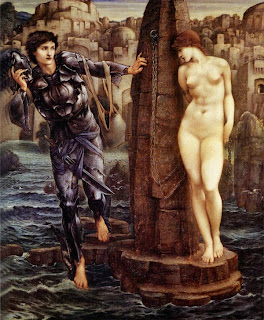This is a remarkable concept, because as some argue for the NEED to discriminate, they insist it rallies people to judge based on differences, which need to be changed. The ugly ones are fixed, the fat ones get lipo, the stupid ones, the bald ones get hair implants, and thus change what once they were discriminated for, thus relieving the ability to discriminate against anyone, because they're all the same. The idea that to stop discrimination and tolerate everyone will lead to totalitarianism, seems remarkably backwards. Thank you, Dictionary.com for the definition of 'totalitarian': of or pertaining to a centralized government that does not tolerate parties of differing opinion and that exercises dictatorial control over many aspects of life. The people who enjoy finding the differences among people's outside aesthetics, generally, do not want their freedom of expression taken away. Is that a double standard or what? Basically, the pretty ones can revel in their beautiful distinctions, while the ones deemed not applicable in beauty pageants must change beautify themselves to also revel in their now BEAUTIFUL distinctions. WHAT!?
Basically, the point of this got a little off track, but my project is Gothic lit's contributions to today's standards of beauty in society. The distinctions between size is not the only stipulation for Utopia, but race and class also play a huge part in rip-tiding the divide. Stated by African American creative writer, Donna ALlegra, "white women are kept in line by racist devices as well-their beauty measured by how much they don't look like people of color. We are said to wear the characteristics, like weight on a woman's body, that are deemed unacceptable by white American beauty standards." 'The racist power of internalized fat-phobia is a surefire tool to keep white bodies "pure" in shape and size.' (LeBesco, 6) So, the damsel from Gothic lit is mostly seen as the white woman's burden, whereas "Colored women densely code sex, animal, dark, dangerous, fecund, pathological." (Hartman in-text, Lutz, 319) Women of color are not expected to be comparable to the white woman's beauteous expectations. Though women of color have struck the chords of French imaginists, the main female characters in literature past and media today in Western popular culture remain characteristically linear in that they are white and they are damsels of thin design.
In this, I'm posting a youtube video of hot comic book women. This brings up the idea of the Madonna and the whore. Standardized beauty is regenerated time and again for the idea of pleasing men in society. Comic books appealed to me for this, because they display prominently the Madonna (pure and chaste, sweet and innocent, waiting to be ravaged) and the whore (the badass, full of superpowers, fighting off bad guys, with jiggling breasts in skimpy outfits that tear easily). "While they value large size, some Jamaicans differentiate between "good" and "bad" fat...a conclusion that begs feminist deconstruction for its overreliance on male sanctification of female bodies." (LeBesco, 9)
This all may have been a little jumbled, and I'm fairly positive I didn't use any excerpts from any Gothic novels...so, I'll also post a picture of a typical damsel in distress and a picture from a woman in popular culture to demonstrate the similarities.

